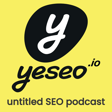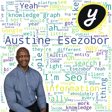
How to build a business the smart, independent way, with Bryan Clayton
After building and then selling a hugely successful lawn care business in Tennessee (USA), Bryan Clayton found himself at a loose end. So he did what any sensible person would do and started up another new business.
Ten years have passed since Bryan and his co-founders launched https://www.yourgreenpal.com/. In this cheerfully animated conversation, Bryan shares the story of his journey so far.
If you are considering seeking investment to grow your business, then you really need to listen to this episode. Bryan shares some pearls of wisdom that could change the path you are on.
We also talked about the similarities between making it big as a musician and building a successful business.
https://www.linkedin.com/in/bryan-clayton-a96b33214/
https://www.yourgreenpal.com/



